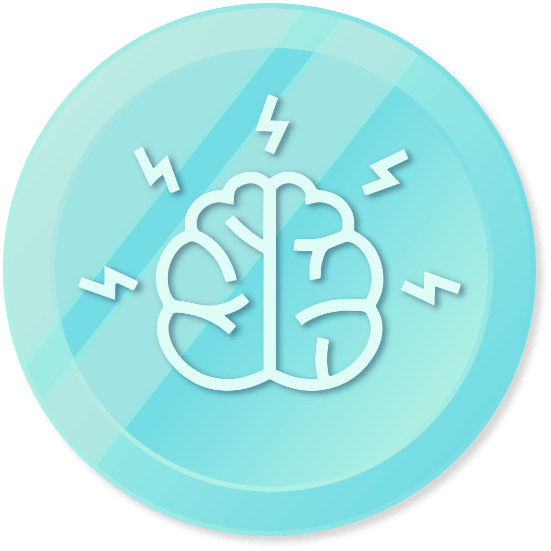MINDFULNESS
A large body of research has demonstrated that mindfulness supports mental wellness.
In our mindfulness section, we teach evidence-based mental health skills including meditation, breath work, gratitude, positive psychology, resilience, emotion awareness and regulation, and reframing skills found in cognitive behavioral therapy. We teach these skills in age-appropriate, digestible mini lessons, helping kids of all ages develop powerful skills and mindsets.

Meditation
Meditation is the process of noticing thoughts and emotions without evaluating or attaching meaning to them. This allows people to act more deliberately, according to their deeply-held values, rather than their in-the-moment thoughts and feelings. Meditation has been proven to increase happiness and decrease stress and anxiety.
Additionally, meditation can help with creating new habits or changing unwanted habits. It helps people to become more self-aware and compassionate towards
themselves and others. Meditation increases focus and decreases memory loss. It also helps with getting quality sleep and with pain reduction. Children (and adults!) who learn to meditate will likely become happier, calmer, and more self-controlled.
Sources:
Healthline, Mindvalley
Emotion Awareness and Regulation
Everybody has bad days and sometimes reacts to other people and situations inappropriately. On these days, people often just try to get through the day without taking time to understand how they are feeling and what they are experiencing. When people learn to recognize the emotions underlying their behavior, they become empowered to resolve and revise their behavior by addressing its emotional roots. Simply put, people are better able to regulate their emotions when they are more aware of them, and emotion regulation largely determines behavior.
Sources:
Exploring your Mind, Positive Psychology
Gratitude
Gratitude has been proven to increase both physical and mental health. It decreases aggression and increases compassion; it reduces stress and increases resilience. Gratitude increases self-esteem and social connection which in turn improves mood. Additionally, gratitude improves sleep, which is essential for the brain to process the experiences of the day and prepare for a fresh new day.
Sources:
Harvard.edu, Psychology Today
Breath Work
Leveraging the power of breath decreases stress and increases endorphins which help in combating pain. Deep breathing also helps to cleanse the lymphatic system. In fact, breath is responsible for 70% of the body’s cleansing of toxins. Breath work has been shown to improve immunity, increase stamina, lower heart rate and blood pressure, improve digestion and increase core strength.
Sources: Neurocore Centers, Healthline, Urban Balance
Positive Psychology
Positive psychology has been called “the scientific study of what makes life most worth living” (Peterson 2008).1 We help kids focus on their strengths, positive memories and happy emotions. By doing this, they become more resilient to stress and hardship while increasing their levels of joy and meaning.
Sources: PositivePsychology.com
CBT skills
CBT skills: Cognitive Behavioral Therapy (CBT) helps people recognize and revise their default ways of thinking. Beginning with the framework that thought leads to emotion which leads to action (which in turn leads to thought), CBT helps people recognize and regulate their thoughts. For example, many people have what CBT calls automatic negative thoughts (ANTs), which often result in harmful behaviors. For example, a child who sees two friends whispering might respond with the ANT, “They must be talking about me.” ANTs like this trigger emotions like fear or anger which often lead to negative behaviors such as isolation or aggression. In CBT, children are taught that they don’t have to trust or believe those automatic thoughts, and they are given tools to manage and even alter them so that, in moments like this one, after seeing friends whispering, they can think, “I wonder what they are talking about—it could be anything!” CBT provides children with a tool chest of skills like this that can help them respond well in any number of situations.
Sources: Psychology Today





